Guest service more important than ever
August 8 2014
Hospitality always will be about an experience, an emotion. It’s not something guests can take home and put on a shelf.
| By Thomas K. Tritschler HNN columnist We live in a time of technology, as advanced as never before. We are surrounded by new gadgets and technical solutions that are supposed to simplify life. Children grow up in a world of technology at their baby fingertips and find themselves surrounded by devices, that are able to virtually do everything from communicating by voice, email or social media to playing computer games, recording videos, replay music to writing business plans. Still, communicating effectively becomes more challenging.
Communicating with a guest who might have been brought up in the scenario described above presents the true challenge.
Regardless of any hotel classification, nationality and geographic location, every guest seeks the hotelier‘s attention—the desire to be acknowledged and to be looked after. Although this seems so elementary and supposedly so easily fullfilled, proper communication presents one of the toughest challenges we are facing.
Improving guest communication ranks among the top priorities hotel owners and operators need to focus on.
Aside from the essential tools to optimize service standards; to ensure strategic management; to regularly update one’s furniture, fixtures and equipment; to establish effective revenue management which leads to a profit-yielding return on investment, a hotel manager needs to focus on supposedly old-fashioned values, such as proper voice communication, eye contact and body language.
Who wants to be greeted by a stereotype machine? Who wants to talk to a robot when voicing a complaint? Who wants to arrive and depart without even having been acknowledged by anything other than the massive in-room multimedia flat screen that has been programmed with one’s name and credit card details?
Nobody wants to return to the Stone Age of hospitality. Yet, continuously training hotel staff as well as management is one of the main responsibilities to administer an owner’s investment wisely. The cultivation of visions and missions and the foresighted upbringing/education of constantly new generations will be increasingly important. Focusing and primarily refocusing on the key elements of genuine hospitality are just but a few aspects of profitable and effective hospitality.
Among them are some of the most old-fashioned, classic values that have always been important and that will most likely never change. Effective and successful guest service needs to revolve around the attention to details, managing by example, empowerement of staff, mutual respect among employees and management, shared values, emotions, sincerity and sensibility to all issues.
Employers and owners who are focusing on classic values while combining these with state of the art technology, which is readily available, will clearly have an advantage over their competitors.
Hospitality is unique in that a product is not sold. We don’t produce something that can be taken home, nothing that can be kept on a shelf or put to use. Hospitality will always be about an experience, an emotion. Very simple and basic, yet so incredibly difficult to provide authentically. Genuine hospitality can be felt with every sense; it is merely a feeling, being enhanced by appropiate hardware. Regardless of the type of hospitality business, it will always be a skilled human being who makes all the difference.
Thomas K. Tritschler is the founder and principal of Tritschler Associates, a boutique advisory firm to the hospitality industry. Thomas has a wealth of experience in managing some of the world’s finest hotels and serves on the board of directors of the prestigious ISHC. The company’s office is based in Munich, Germany. |

